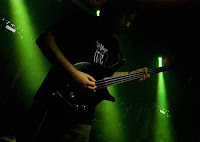(Roadrunner Records, 1991)
Arise è il punto di equilibrio nella carriera dei Sepultura. Apice delle sonorità death/thrash metal, è anche il punto d'inizio di una profonda ricerca dei ritmi e delle atmosfere tribali brasiliane. Il risultato è un capolavoro, cattivo come il thrash metal degli Slayer, fangoso come il death metal degli Obituary, sporco come il crust punk degli Amebix, "spirituale" come un oscuro rito tribale. L'etichetta Roadrunner aveva grandi aspettive, perciò l'album fu registrato al Morrisound Recording di Tampa (prima volta che i Sepultura registrarono un album al di fuori del Brasile), uno degli epicentri della rivoluzione death metal. Arise contribuì alla rivoluzione con un suono innovativo, distante da quelli americano, inglese e svedese. Arise è polveroso come le mani che scavano nella terra, in cerca di radici, lontane da una superficie dominata da visioni apocalittiche. Un atto di rivolta contro una realtà ingiusta e violenta.
[R.T.]
***
Sepultura - Arise
(Roadrunner Records, 1991)
Arise is the point of equilibrium in Sepultura career. Highest peak of death/thrash metal sounds of the band, it is also the beginning of a deep research of Brazilian tribal atmospheres and rhythms. The result is a masterpiece, evil as Slayer thrash metal, muddy as Obituary death metal, dirty as Amebix crust punk, "spiritual" as a dark tribal rite. Roadrunner label had big expectations, therefore the album was recorded at Morrisound Recording in Tampa (first time Sepultura recorded an album outside Brazil), one of the epicenters of death metal revolution. Arise contributed to the revolution with an innovative sound, far from American, English and Swedish ones. Arise is dusty as hands digging in the earth, in search of roots, far from a surface dominated by apocalyptic visions. A riot act against an unfair and violent reality.
[R.T.]














